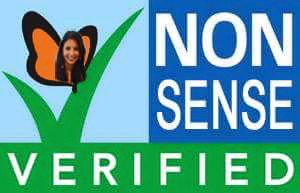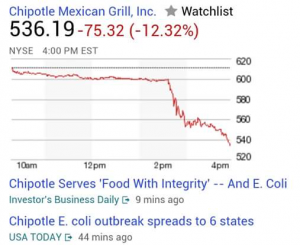A little over a year ago, Dannon yogurt announced they would be transitioning to non-GMO sourced feed for the dairy cows that provide the milk for Dannon yogurt.
This is a problem for many reasons.
I’ll never forget it. I was visiting a large-scale dairy farm in Indiana that provides milk for Dannon, shortly after this announcement was made. We were all in a room — myself, the dairy farm family, their team of veterinarians, their feed guys, and more. Probably about a dozen of us, laughing, having fun. This farm family is incredible — very, very nice people. When the farm owner talks about his cows, you see his face light up. His passion is ignited when talking about the love he puts into his cows.
That energy all changed when the topic of “non-GMO” came up. Dannon has partnered with the Non-GMO Project to get verified, but the problem is that the farmers don’t want it. We in agriculture are well aware of the fact that The Non-GMO Project straight up lies to people for profits, in order to sway consumers into their $19 billion wheelhouse. GMOs do great things for farmers and the environment, so when folks like Dannon jump on board with this, it hurts everyone.

The room fell silent. We all looked at each other in dismay and frowns. I asked, “What are you guys going to do?”
“I don’t know,” said the dairy farmer. We looked at the feed guys, who’s brother is being forced to convert his acreage to to non-GMO as a supplier to this farm. He doesn’t want to do it. It comes with costs — to him, the farmers, and most importantly, the environment. Sure, there can be a premium for growing non-GMO corn for example, but oftentimes farmers claim that premium doesn’t add up after the increases in fuel and pesticide costs are factored in. This is why 95 percent of farmers choose to grow GMO crops. It means less pesticides, less fuel, less tillage. This is better for erosion control, improves runoff and soil health and infiltration — the list goes on. Commercial farmers generally prefer and praise modern seed “GMO” genetics.
Dairy farmers are sort of backed into a corner at the moment. This farm in particular has a multi-year contract with Dannon and must comply, or else they would have to search for a different place to sell milk for their 1,500-cow dairy. At a time when dairy prices are low and production has a surplus, it can be extremely difficult for dairy farmers to partner with someone else who is taking on more milk supply. Couple this with the fact that Dannon just built a 4,000-head dairy farm not too far away, and you have an even tougher time with the competition.
But the plot thickens. According to this, a lot of feed is imported to keep up with the non-GMO demand, and they don’t have to be fed non-GMO all the time to keep the label. In a marketing campaign where French-based Danone claims they want to be more “sustainable,” why are they turning their backs on science and being dishonest? Outsourcing goes against a mission of sustainability no doubt, when you could source from right there in the heartland.
It’s already less sustainable by switching to non-GMO in the first place. Dannon seems to be headed down the road of deceptive marketing gimmicks to sell their products just as companies like Chipotle did. Fear sells, so make something like “GMO” sound scary and rake in the cash.
But is it helping? Sales within a Dannon were on the decline, so they acquired more business and started this “non-GMO” marketing campaign. Despite the fact that modern agriculture groups vehemently opposed this decision, that didn’t stop them.
So, hey, Dannon, how’s it going? Not well, according to this report from Bloomberg. The same happened to Chipotle as shown here.

This line is what I call the “I told ya so” line. Dannon stocks are lower than they’ve been in a decade after making this non-GMO announcement last year. When trying to gain market share, is the route of non-GMO really causing an uptick in sales? The reality is no, it isn’t. Consumers are becoming more aware and wising up on these misleading marketing campaigns and standing up to these corporations to tell them no. We don’t want your non-GMO label. For proof of this, check the social media comment section on places like Hunts and Triscuit here and here. (If you like science and honesty in food labels, you will love this.)
So why did they make the switch to non-GMO? Follow the money. It’s no secret there’s a lot of money to be made off of consumer fear alongside the (anti-science) and anti-GMO movement. Dannon knows this and made this statement very public. It’s not scientific, it’s marketing fluff. Despite the benefits of GMOs, the non-GMO project and other “natural” and “organic” food corporations have money and influence to gain food corporations on their side. It is now a $350 billion business. If you look at who’s reporting and influencing companies like Dannon to make this switch, the answer is quite clear: Cornucopia Institute, The Non-GMO Project, The Organic & Non-GMO Report, just to name a few. To see who does their funding, follow this link here.
It all makes sense, it’s all coming together now. But hopefully science will prevail and this will continue to push food companies into realizing that just because their voices are loud, doesn’t make these activists right. The loudest voices can and should be the scientific ones, not the activists with an agenda.
Fortunately Dannon has a customer link here where you can leave feedback and tell them what you think of their decision to do this. You can take action like what has been taken to social media examples listed above to let folks know that it’s not what we want. We want sustainable, environmentally friendly food options grown right here by Americas farmers who’ve been doing the best job with the best environmental tools, and they should be respected for doing it well.
Michelle Miller, the Farm Babe, is an Iowa-based farmer, public speaker and writer, who lives and works with her boyfriend on their farm which consists of row crops, beef cattle, and sheep. She believes education is key in bridging the gap between farmers and consumers.



